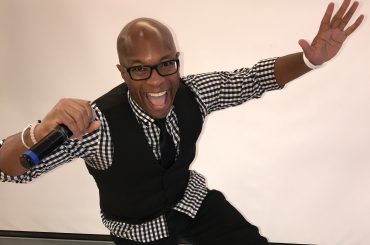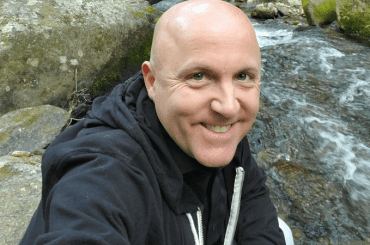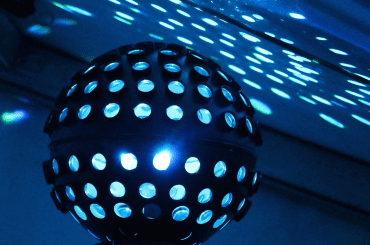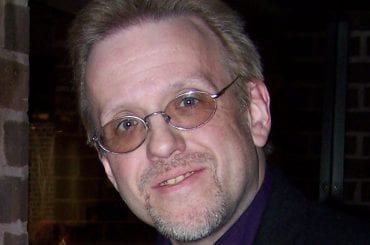Syracuse, N.Y. — Cindy Ormond possesses the most unlikely DJ-origin story we’ve yet heard. She calls it a “right place right time” sort of thing, and it involves studying for her RN degree.
“In 1990 while studying for my RN, I was offered a position as a karaoke hostess,” she says of getting a gig with “The Karaoke Krew,” a local upstate entertainment company. “It was a total fluke. Karaoke was a new concept then, and I could earn more than I would as a student nurse, so I welcomed the financial—and social—opportunity.”
A few years later, the owner of “The Karaoke Krew” Linda Neaton, sold the company to Ormond. “She was my first mentor,” she says. “She was so generous… it was truly a gift from her. We became Ormond Entertainment and offered corporate and wedding DJ services, in addition to our weekly karaoke shows.”
We asked Ormond what challenges presented themselves when she took over the DJ business, and her reply was unusual. “The first challenge was changing my own perceptions,” she says. “While attending a Chamber of Commerce event, I shared my thoughts with another member: ‘I can’t just be a DJ for the rest of my life – I need to get a real job!’”
Thankfully, says Ormond, she was talking to a very wise individual, who asked her, “What’s wrong with being a business owner?”
A light went off. “That question lead to a major paradigm shift,” she says. “What’s most remarkable—and sad—is until that moment, in my mind this wasn’t a legitimate profession. I was unconsciously subscribing to the public myth that DJs just do this on the side for fun.”
So Ormond embraced the concept of being a business owner. She developed a business plan, purchased equipment, secured personalities and talent. “We also attended our first DJ conference,” she says, “and subsequently helped develop a local association to improve the perception of the industry and promote networking, education, and support between companies.”
There were other challenges — branding being one of them. “We were so successful in the karaoke market [10 shows and a radio segment each week], many people who knew and loved us just did not know we were also a DJ service. They associated us with karaoke exclusively, and that was an obstacle we needed to overcome.”
How did they do it?
“We completely redesigned and polished our brand, focusing our website and all of our collateral materials on the DJ portion of the business,” says Ormond. “We participated in bridal shows, connected with event planners, published articles, spoke at conferences, anything we could think of that would build our credibility as DJs. Our website is currently in its third iteration, with the fourth adaptation looming.”
At one DJ convention, she sat in on Mark Ferrell’s “Getting What You’re Worth” seminar. “It changed my business and my life,” she says. “Consider all that a family invests in the planning of a wedding in terms of time, thought, care, travel, and the biggie… emotions! Then, of course, there’s the sizable financial investment, too. Recent research suggests the average cost of a wedding in the U.S. hovers around the $30,000 mark.
“Next, think about how much responsibility the DJ entertainer has for the success of the entire event. We’ve all heard people say, ‘The DJ makes or breaks the reception,’ right? Our clients are trusting us to ‘make good’ on their $30,000 investment, but is our compensation commensurate with our level of responsibility? Furthermore, do we DJs really understand what’s at stake? To quote Mark, ‘If you want to find out what you’re worth, try not showing up.’ Are our hearts in the right place? Is our level of service and performance truly what it should be? All of these thoughts and more inspired me to value our services, clients and ongoing performance training more appropriately.”
She continues, “Life changing? You betcha. Remember how we used to host 10 karaoke shows a week, plus all of our other types of events? We now only host 25 weddings a year instead – hallelujah!”
Soon, Ormond was creating her own experiences that she could use for her own talks. She participated in a “How to Increase Your Ceremony Revenue” at a DJ Expo. “Rather than just pushing play for the processional and recessional, be the helpful expert they need,” she says. “When they marry on-location, there’s almost always a gap in services. For example, if it’s a long, hilly, grassy aisle and grandma doesn’t walk well, advise them she might rather be comfortably seated early rather than risking a fall during the processional. Coach their friend who is going to marry them, but has never done this before. Make him look like a pro, and charge accordingly.”
On the gear side, Ormond Entertainment uses, among other items, loudspeakers from RCF and Harbinger, microphones from Shure and lighting from Chauvet DJ. “While gear is a necessary tool to accomplish what we do, it’s my least-favorite part of the business,” she says. “My focus has always been on the ‘people side’ of the business – from customer service to talent development.”
Ormond offered another interesting response when we asked if she considers herself primarily a businessperson or an entertainer.
“This feels like a trick question,” she says. “When we were growing up, we moved frequently and I was often the new kid in class. I’ve always remembered how it felt to walk into a room full of people and not know anyone. It’s why I’m so motivated to make sure people feel absolutely comfortable whether they’re guests in my office or at a reception. I also enjoy taking performance workshops, discovering ways to surprise and personalize each celebration, and the genuine exchange between us and the guests, so… ‘entertainer’ is it!”
In the future, Ormond hopes to establish a second office in a warmer climate. “It’ll allows us to escape Central New York winters,” she says. “My husband has yet to embrace the idea — please stay tuned!”








